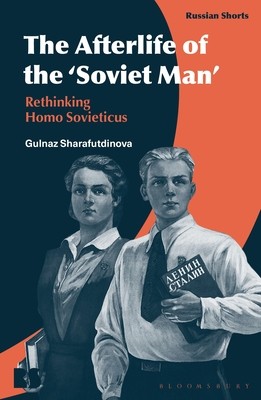
- We will send in 10–14 business days.
- Author: Gulnaz Sharafutdinova
- Publisher: Bloomsbury Academic
- ISBN-10: 1350167711
- ISBN-13: 9781350167711
- Format: 12.7 x 20.3 x 1 cm, kieti viršeliai
- Language: English
- SAVE -10% with code: EXTRA
Reviews
Description
Almost three decades after the collapse of the Soviet Union, today more often than ever, global media and intellectuals rely on the concept of homo sovieticus to explain Russia's authoritarian ills. Homo sovieticus - or the Soviet man - is understood to be a double-thinking, suspicious and fearful conformist with no morality, an innate obedience to authority and no public demands; they have been forged in the fires of the totalitarian conditions in which they find themselves.
But where did this concept come from? What analytical and ideological pillars does it stand on? What is at stake in using this term today? The Afterlife of the 'Soviet Man' addresses all these questions and even explains why - at least in its contemporary usage - this concept should be abandoned altogether.EXTRA 10 % discount with code: EXTRA
The promotion ends in 22d.08:35:39
The discount code is valid when purchasing from 10 €. Discounts do not stack.
- Author: Gulnaz Sharafutdinova
- Publisher: Bloomsbury Academic
- ISBN-10: 1350167711
- ISBN-13: 9781350167711
- Format: 12.7 x 20.3 x 1 cm, kieti viršeliai
- Language: English English
Almost three decades after the collapse of the Soviet Union, today more often than ever, global media and intellectuals rely on the concept of homo sovieticus to explain Russia's authoritarian ills. Homo sovieticus - or the Soviet man - is understood to be a double-thinking, suspicious and fearful conformist with no morality, an innate obedience to authority and no public demands; they have been forged in the fires of the totalitarian conditions in which they find themselves.
But where did this concept come from? What analytical and ideological pillars does it stand on? What is at stake in using this term today? The Afterlife of the 'Soviet Man' addresses all these questions and even explains why - at least in its contemporary usage - this concept should be abandoned altogether.

Reviews